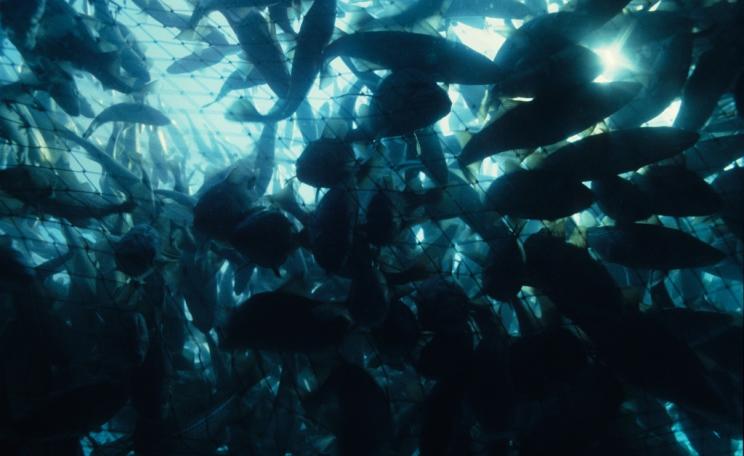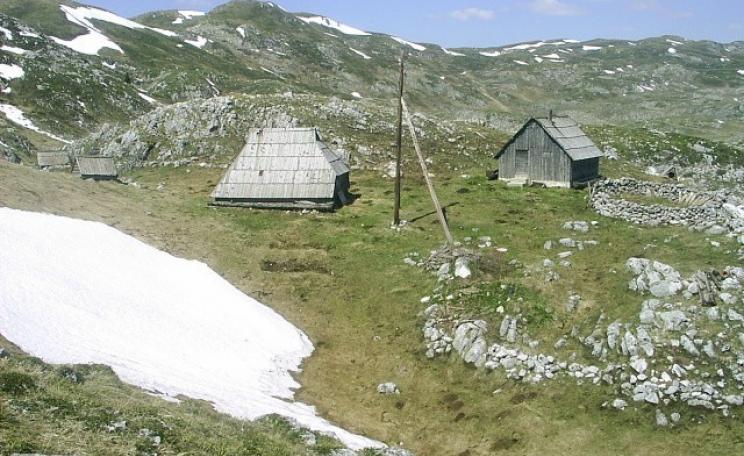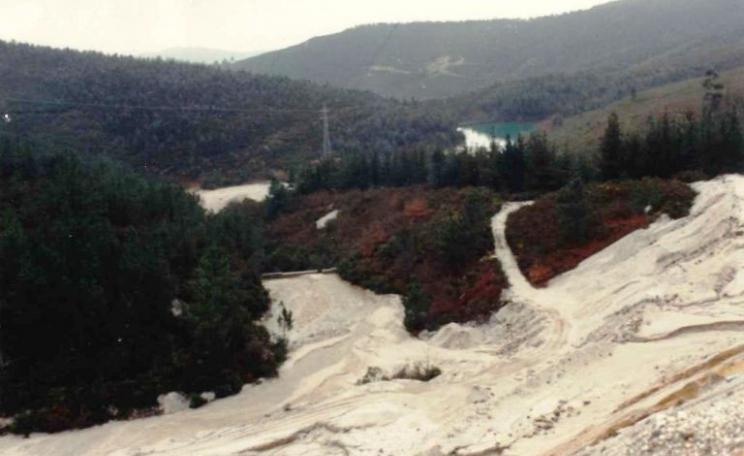Our government has utterly failed to protect the Dogger Bank.
Activists have placed a first set of inert granite boulders at precise intervals inside a North Sea protected area to ensure that bottom trawlers can no longer operate in the new bottom trawler exclusion zone. Another set of boulders will be placed in the coming days.
This comes after a Greenpeace investigation found that industrial bottom trawlers are systematically breaking the law while fishing in the Dogger Bank. 11 out of 19 bottom trawlers observed fishing in the Dogger Bank in June 2020 were AIS dark, a serious breach of UK and international maritime law.
These bottom trawlers are directly destroying the Dogger Bank’s protected feature, the seabed, which is in “unfavourable” condition.
Habitats
The Dogger Bank’s seabed is one of the North Sea’s most important habitats. It is home to sandeels, crabs, flatfish and more.
These species are a vital food source for porpoises and seabirds like puffins. There are no permanent restrictions on fishing activity in the Dogger Bank protected area, making it protected in name only. Bottom trawling activity has increased in the Dogger Bank in recent years.
Activists will continue to place boulders in the new bottom trawler exclusion zone until it is fully protected from all bottom trawling. Greenpeace will remove the boulders if the UK Government properly protects the Dogger Bank protected area.
Failure
Chris Thorne, a Greenpeace UK oceans campaigner, said from on board the Esperanza: “Our government has utterly failed to protect the Dogger Bank, and all our marine protected areas, from destructive industrial fishing.
"How can you continue to allow bottom trawlers to plough the seabed in a protected area designed specifically to protect the seabed? It beggars belief that this Government continues to call itself a ‘global ocean champion’ when it leaves its own seas at the mercy of destructive industrial fishing.
“Allowing bottom trawling in a protected area established to protect the seabed is equivalent to allowing bulldozers to plough through a protected forest. This must stop. Our Government won’t act, and we can’t sit idly by while they allow supposedly protected parts of our oceans to be destroyed.
“We have carefully and precisely placed these inert natural boulders in this new properly protected area, which when complete will be permanently off limits to all bottom trawling. We will remove them only when our Government takes the necessary action to properly protect the Dogger Bank.”
Greenpeace commissioned an independent scientific agency, BioLaGu, to conduct a Natura 2000 Environmental Impact Assessment on the potential impact of the activity. This Assessment concluded the activity would not have a significant impact on the protected feature of the Dogger Bank.
Conservation
Greenpeace activists have informed the relevant marine authorities to ensure navigational safety for mariners in the area.
Despite the Dogger Bank being formally designated as a Special Area of Conservation in 2017, the UK Government has failed to implement effective management measures to properly protect the area. There is a brief temporary closure of the scallop fishery to allow scallops to spawn, but this will be lifted after scallops finish spawning in early October. This is not intended to protect the seabed.
WWF, Client Earth and other NGOs lodged an official legal complaint against the UK, Dutch and German Governments in 2019 over their failure to properly protect the Dogger Bank from bottom trawling [4].
Greenpeace is committed to properly protecting the Dogger Bank, and will continue to expand the new area off limits to bottom trawling until the UK Government properly protects the Dogger Bank. A Greenpeace report, released in August, revealed that the majority of the UK’s offshore protected areas are failing to meet their conservation targets.
Greenpeace has been campaigning for the UK Government to ban destructive industrial fishing vessels, like supertrawlers and bottom trawlers, from operating in UK protected areas. This ban will be easier to enact after Britain leaves the European Union’s Common Fisheries Policy.
This Author
Marianne Brooker is The Ecologist's content editor. This article is based on a press release from Greenpeace.







